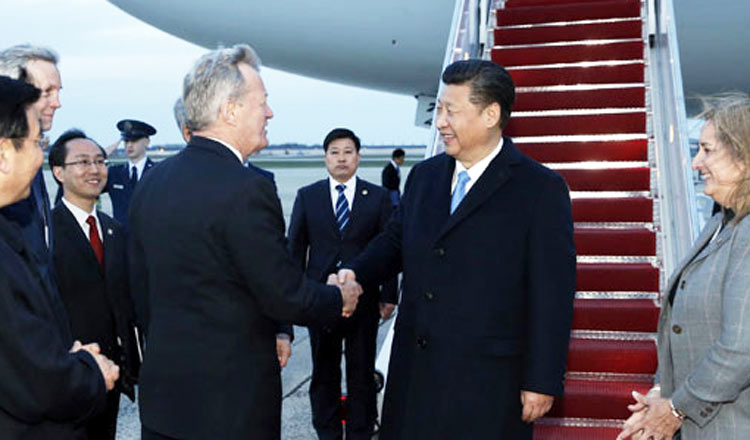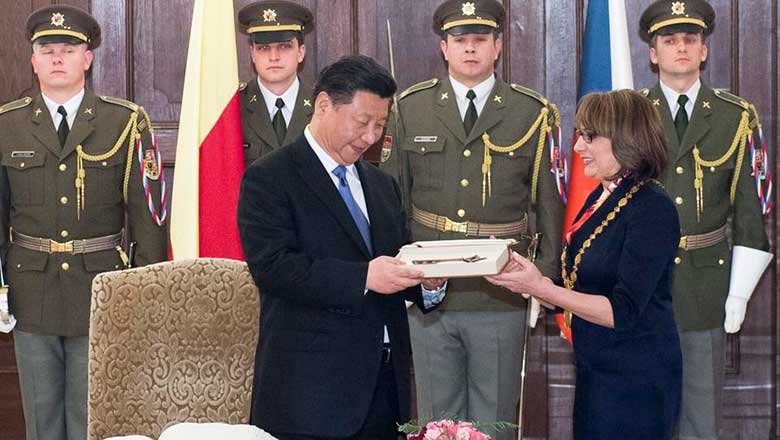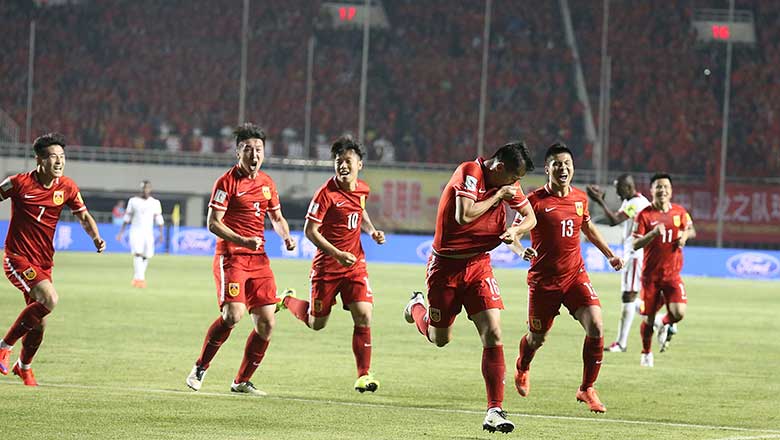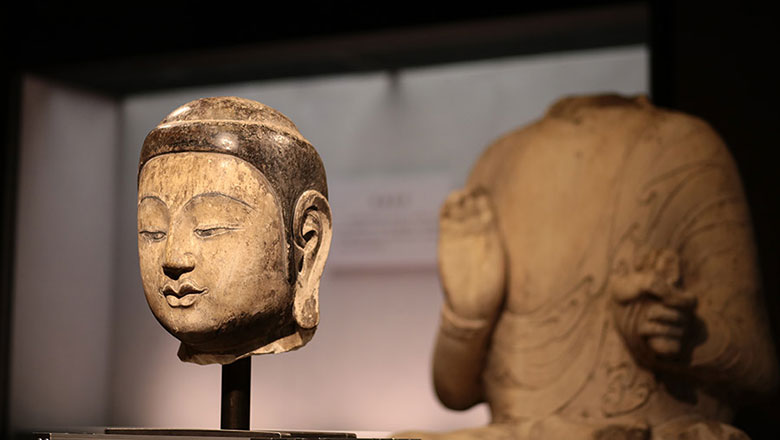New beginning at the final nuclear security summit
Updated: 2016-04-01 13:29
By Tomas Casas(chinadaily.com.cn)
|
||||||||
On August 2014 a turbine at the Doel 4 nuclear power plant was “intentionally manipulated”, a sabotage that contributed to half of Belgium's nuclear capacity coming to a standstill. To this day the case is unresolved even though a jihadi was found working there. The fourth and final Nuclear Energy Summit in Washington DC aims to mitigate a low likelihood, highly catastrophic black swan event.
The threat equation that will be addressed is no secret: Threat = Terrorist motivation times terrorist capabilities minus mitigation efforts. Few will doubt that the two first variables of the equation are in ascendance. For instance, in terms of motivation, terrorists of yore saw the fallout of nuclear terror as irreconcilable with their political agenda. In contrast, there are terrorist groups today that openly wield unconstrained and apocalyptical narratives.
In terms of capabilities the industry is growing post-Fukushima, with new applications being developed towards a clean energy future. Exciting headlines talk about Bill Gates’ Terra Power, Jeff Bezos’ General Fusion or Rosatom’s nuclear spacecraft engine enabling a return trip to Mars. The nuclear innovation boom will in parallel contribute to nuclear knowledge dissemination and hence also increase the risk of know-how ending in the wrong hands.
Mitigation becomes thus more critical than ever; for all their brutality, the recent terror attacks in Brussels and Paris would rank as minor incidents compared to a dirty bomb’s radiological release. A decade ago RAND's Center for Terrorism Risk Management Policy conducted strategic decision-making games for a nuclear “ground-burst” terror attack on the Port of Long Beach. Beyond the terrifying loss of life in America, the economic consequences would hurt nearly every human being on the planet. While the early impact of a dirty nuclear detonation was estimated at $ 1 trillion - 10 to 20 times 9/11 -these costs would only be a prelude as the global finance, insurance and trade systems melt away.
The United States usually leads assertive, multilateral, institution-building initiatives, and in this particular case credit goes to the Obama Administration. The summits have ushered a framework and culture of nuclear security and tackle complacency, a far cry from the void existing at the time of 9/11. And yet despite important achievements, at the moment we have no agreement on nuclear security standards, no shared global databases on incidents, not even report formats - nuclear security excellence is still elusive. President Xi Jinping meeting President Barrack Obama in Washington signals that these challenges are at the top of the global agenda.
The PRC is, after all, betting big on nuclear. China is the best place to pursue next-generation nuclear power. His investee TerraPower will build a reactor prototype with the China National Nuclear Corporation. China aims to become both exporter and global leader in clean-energy manufacturing. In the next four years alone two dozen new nuclear reactors will come online. At the same time the county is already leading in terms of nuclear security making great strides in areas ranging from new legislation to the physical protection, control and accounting of nuclear material.
Russia was absent from the summit despite its cutting-edge nuclear know-how and arsenal. Sanctions broke off two decades of productive US-Russia cooperation. China diplomacy is seen a positive force, reinforcing the narrative that security is best achieved when all big powers are invested in each other.
While direct threats from state actors are not the summit’s emphasis, North Korea will certainly be the elephant in the room. Donald Trump’s statement this week that he is open to Japan and South Korea having nuclear weapons brings the issue further to the fore. When the two presidents meet, further coordination in on the issue will likely be on the table.
The final summit will usher a new beginning with action plans to be developed by specialized entities such as the International Atomic Energy Agency, INTERPOL and the Global Initiative to Combat Nuclear Terrorism. How smooth will the transition be away from the limelight format? The new era will certainly see a new kind of management, and as President Obama leaves office a torchbearer for global nuclear security safety could well be China. China’s bridge-building leadership approach complements America’s style and shall be key to keep black swans at bay.
Tomas Casas is a faculty member at the University of St. Gallen and its Institute for International Management (HSG-FIM).
The opinions expressed here are those of the writer and don't represent views of China Daily website.
- Cypriot court remands in custody man suspected of hijacking EgyptAir flight
- Govt eyes luxury tourists amid concerns over safety
- Sleep tight and don't let sharks bite at Paris aquarium
- Aung San Suu Kyi appointed as Myanmar's new foreign minister
- Hollande promises to tighten Euro 2016 security
- US officials applaud China for nuclear cooperation

 Xi tells Obama disputes should avoid misunderstandings
Xi tells Obama disputes should avoid misunderstandings
 Xi calls for bigger progress in China-Denmark ties
Xi calls for bigger progress in China-Denmark ties
 Chinese president arrives in Washington for Nuclear Security Summit
Chinese president arrives in Washington for Nuclear Security Summit
 President Xi presented with 'key to Prague'
President Xi presented with 'key to Prague'
 China move into the final stage of Asia qualifiers after 15 years
China move into the final stage of Asia qualifiers after 15 years
 Grief, anger engulf Taiwan as suspected killer of girl arrested
Grief, anger engulf Taiwan as suspected killer of girl arrested
 Stolen Buddha statue head arrives in Hebei museum
Stolen Buddha statue head arrives in Hebei museum
 Top 10 best-selling beers in the world
Top 10 best-selling beers in the world
Most Viewed
Editor's Picks

|

|

|

|

|

|
Today's Top News
Marriott unlikely to top Anbang offer for Starwood: Observers
Chinese biopharma debuts on Nasdaq
What ends Jeb Bush's White House hopes
Investigation for Nicolas's campaign
Will US-ASEAN meeting be good for region?
Accentuate the positive in Sino-US relations
Dangerous games on peninsula will have no winner
National Art Museum showing 400 puppets in new exhibition
US Weekly

|

|







